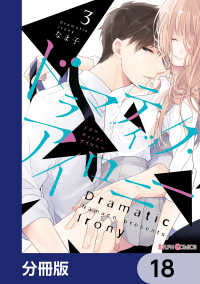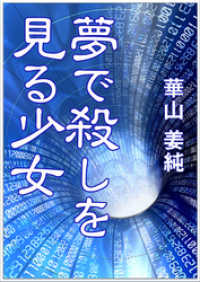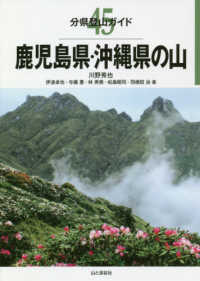- ホーム
- > 洋書
- > ドイツ書
- > Humanities, Arts & Music
- > History
- > antiquity
Description
(Text)
The diversity and wealth of epigraphic cultures in the late Roman Empire is the main focus of this volume. It offers a wide-ranging overview over the geographic and typological diversity of late antique epigraphy and explores the many ways in which people reacted to inscriptions and the monuments connected with them. Particularly the "epigraphic habit", e.g. the complex network of making and using inscriptions, is looked at from different angles. This helps to understand the various political, cultural and religious structures characterized by it.
The first part is dedicated to the study of the "epigraphic habit" in different parts of the Roman Empire and presents detailed quantitative analyses. The second part centers on various genres of inscriptions as well as on associated practices. In a third part "Christian epigraphy", i.e. the impact of Christianity on the antique epigraphic culture, is addressed. A range of maps, charts and figures illustrate the studies and facilitate comparison.
(Review)
"This said, by virtue of its methodological framework, the high quality of its content [...], its broad geographical breadth which encompasses both the Greek East and the Latin West (a rare accomplishment), and the originality and significance of the questions and topics it addresses, this volume certainly represents a milestone achievement." Julien M. Ogereau Zeitschrift für Antikes Christentum 22, 2018/1 20180501
(Author portrait)
Katharina Bolle studied Classical Archaeology and Ancient History at Heidelberg University, where she recieved her PhD in 2014 with a dissertation on the transformation of the epigraphic habit in Late Antiquity. Presently she is working as a post-doctoral researcher in the CRC 933 "Material Textcultures".Carlos Machado was awarded a PhD in Ancient History from the University of Oxford, writing a thesis analysing the relationship between the senatorial aristocracy and the city of Rome in Late Antiquity. He held fellowships in Rome, Heidelberg and Sao Paulo and is currently Lecturer in Ancient History in the School of Classics at the University of St Andrews.
-

- 電子書籍
- ドラマティック・アイロニー【分冊版】 …
-

- 電子書籍
- 夢で殺しを見る少女






